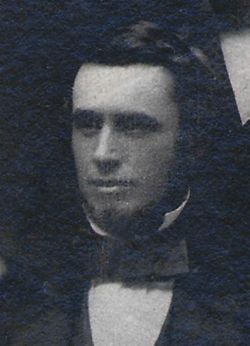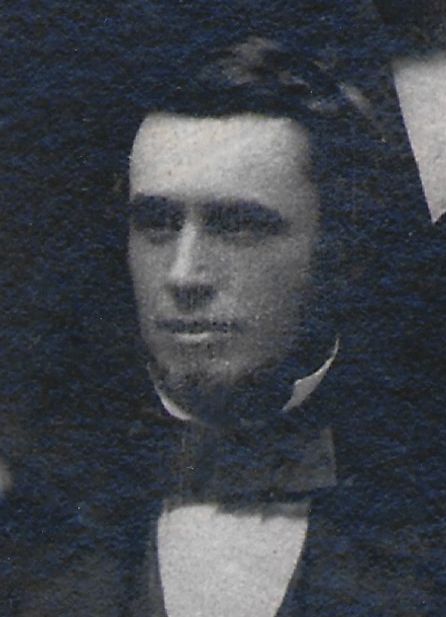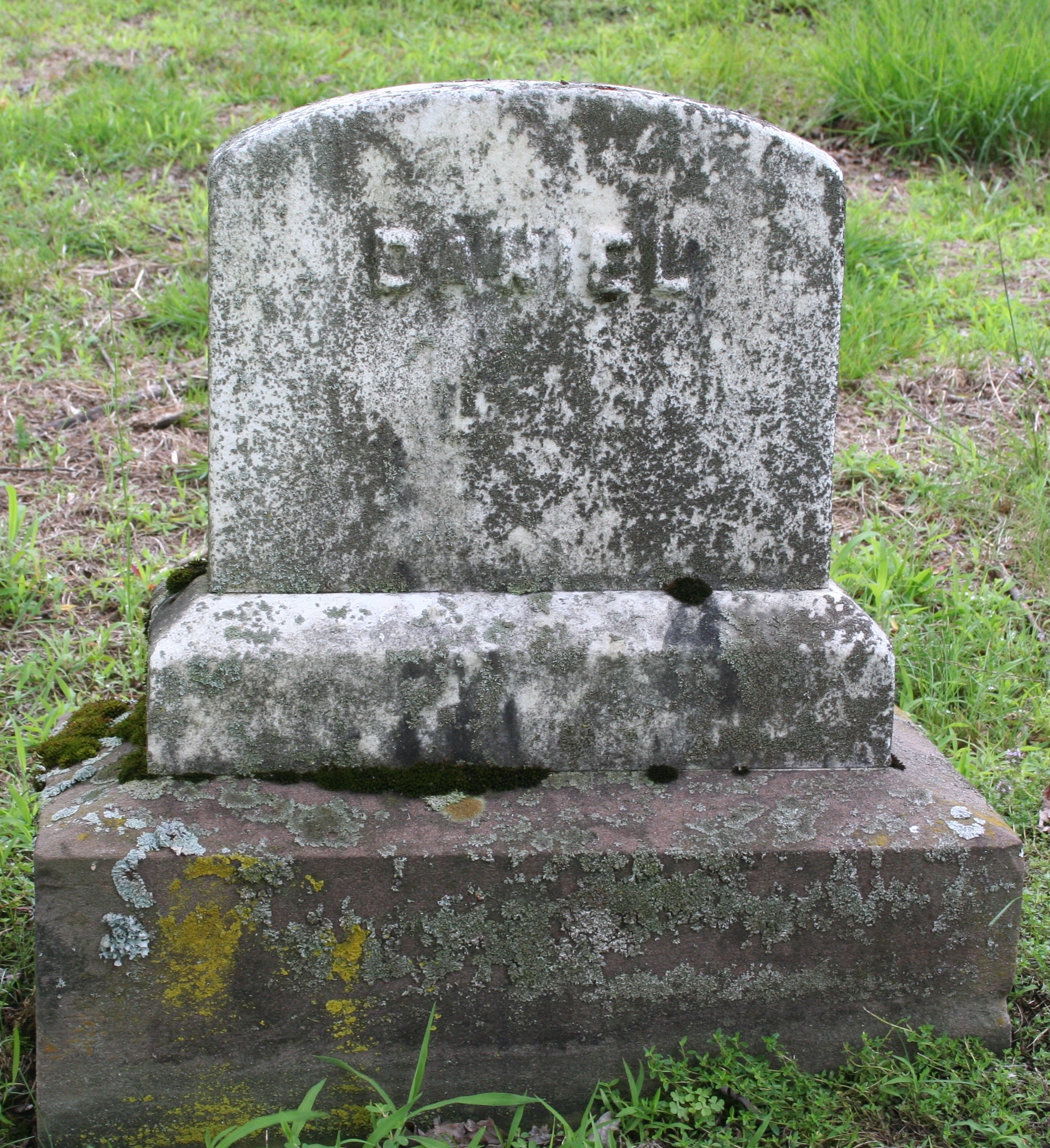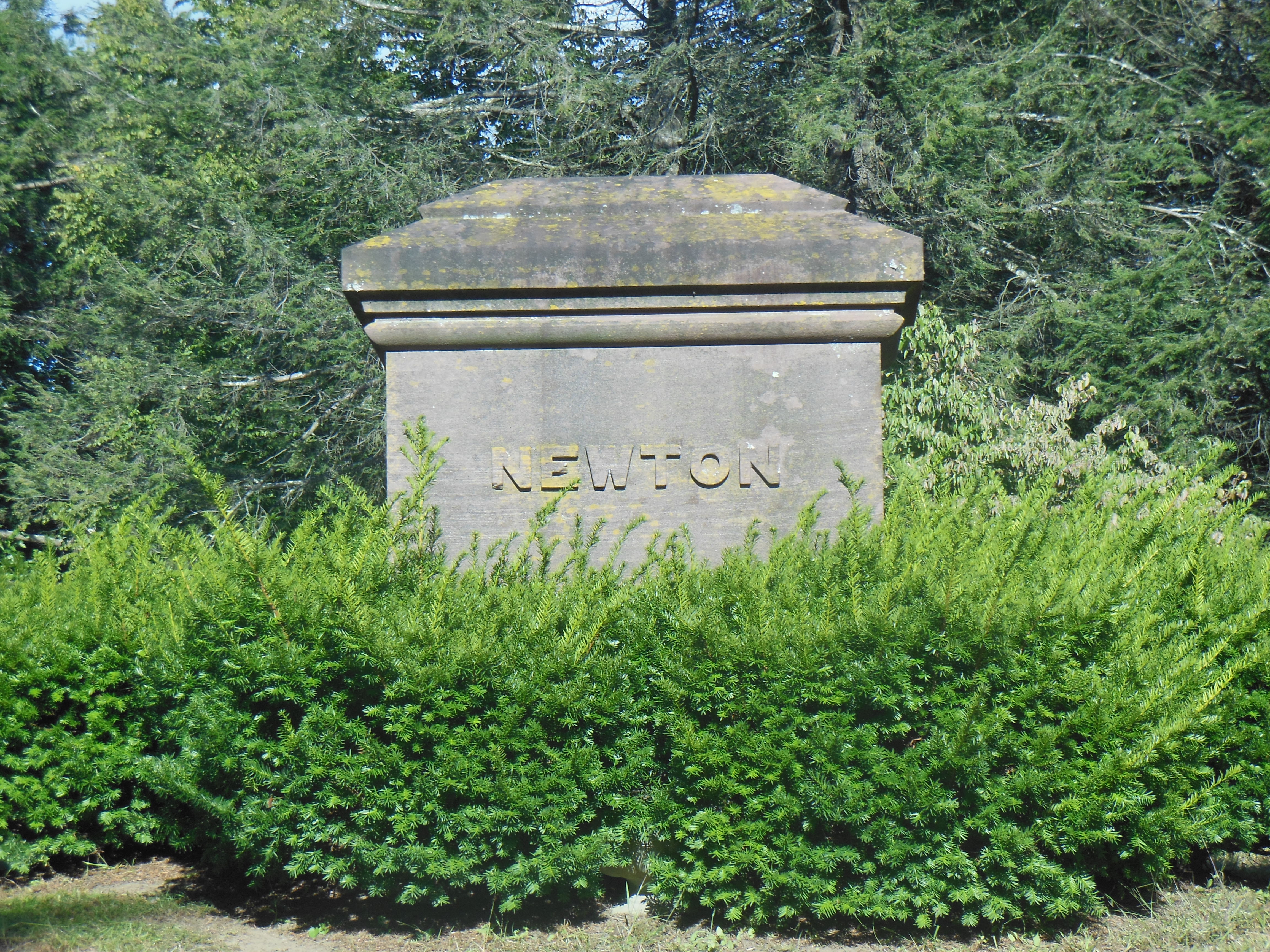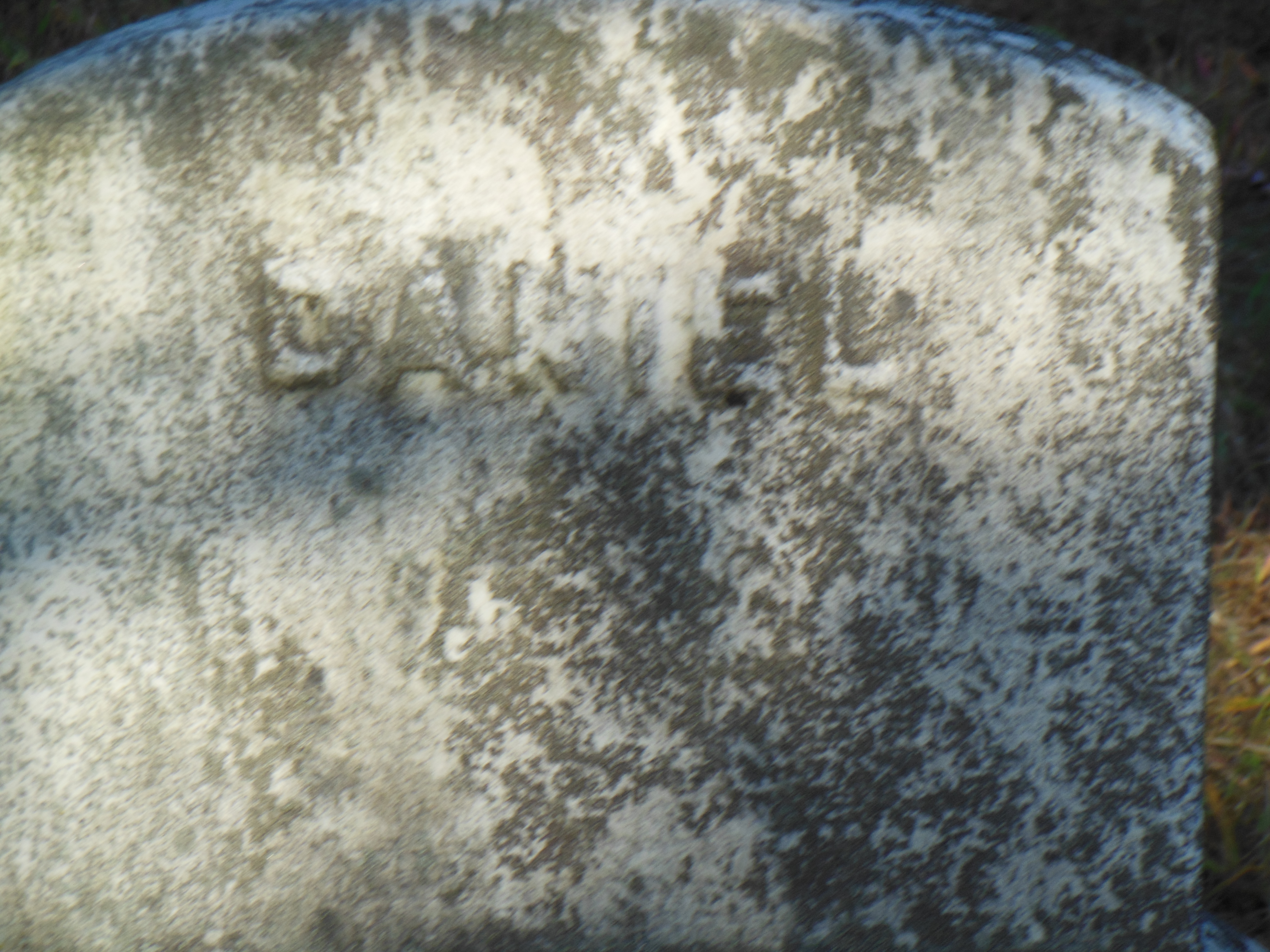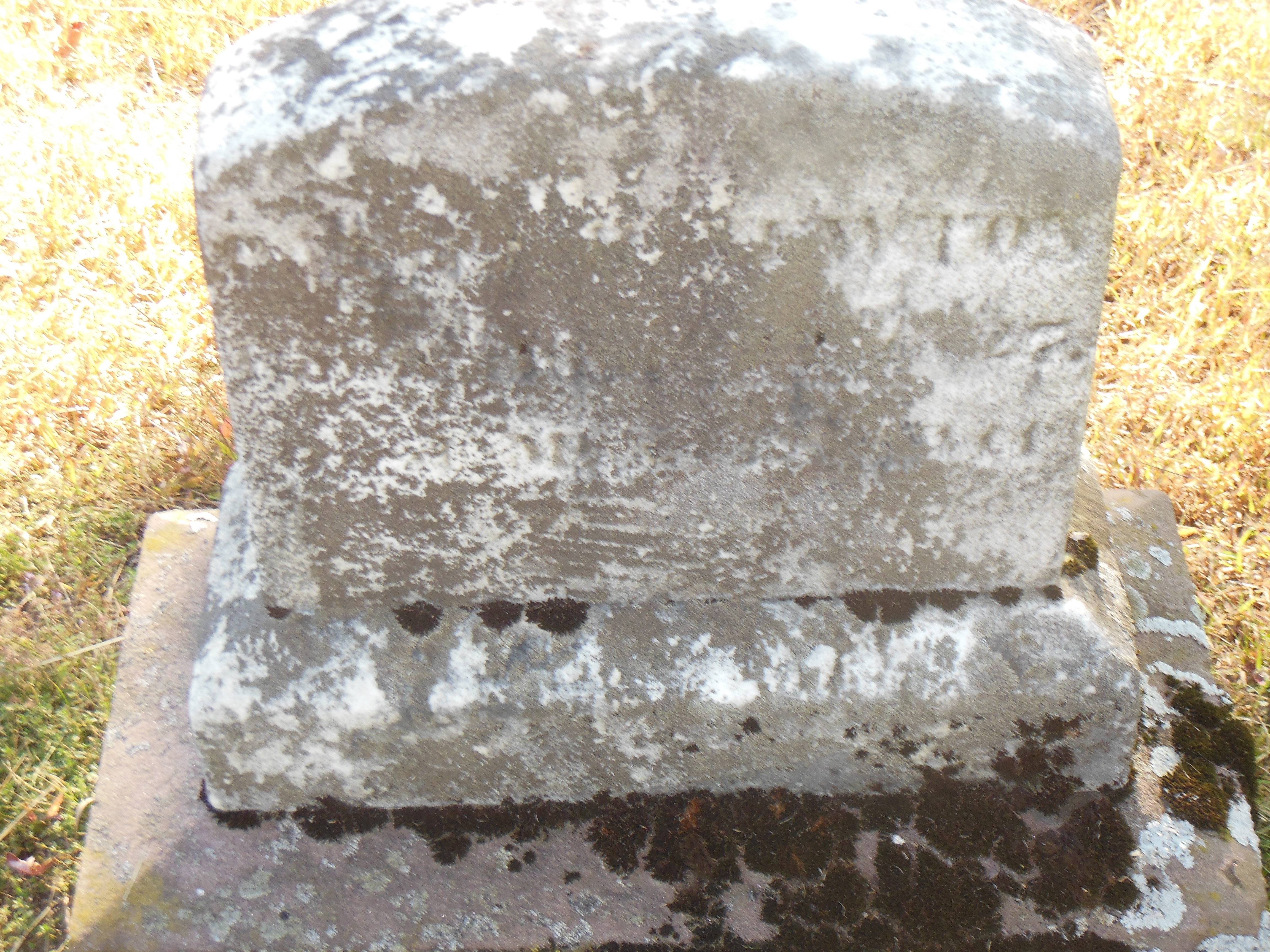Daniel Howe Newton was the third in a family of eleven children, and the oldest son. His early boyhood was spent in his native village, but his education began in the town of Greenfield, Franklin county, where his parents removed early in 18xx. A clever, brainy lad, he pursued his studies diligently, and after finishing the public school course entered the New Salem Academy, passed thence to the Goodale Academy at Bernardston, and closed the higher curriculum at Williston Seminary. As a well-educated and promising youth of twenty he was welcomed to the partnership by his father, and from the very start displayed unusual talent for business. Before he was twenty years old he made a business trip to Cleveland, joining a party of young men from the vicinity who traveled by easy stages to their destination in the "Far West." During his absence he sojourned for a time in Kentucky, and there taught a district school. This trip, which occupied several months, was young Newton's finishing course, and has always been regarded by him as more than equivalent to a year at a university, through its influencing in quickening his faculties, developing his self-reliance, and broadening his knowledge of the world. Mr. Newton remained associated with his father in the lumber business for a number of years. Their affairs prospered, and at a comparatively early period in life the young man found himself not only skilled in business but the possessor of a competence. A Whig in the early period of his manhood, Mr. Newton attached himself to the Republican party at its formation in 1856, and thenceforth for a number of years took an active part in local politics, becoming, in fact, one of the Republican leaders in Franklin County. In 1861 his standing and worth were recognized by his election to the office of County Treasurer, and he held that position until the close of the Civil War, distinguishing himself during this trying period by rare fidelity to the financial trust rep--- in him. On September 24, 1862, Mr. Newton married Miss Abby Cogswell, daughter of Col. Humphrey Charles Cogswell and Sally Hidden Burnham, both descended from old families of these several names in Essex County, Mass.... Settling permanently in Holyoke, Mr. Newton, in conjunction with his brother, John C. Newton, organized in 1863, the firm of D. H. & J. C. Newton, which at once started upon active business as builders and contractors. From the outset, the work of the firm was divided between the two brothers---Mr. D. H. Newton assuming the duties of management and the arrangement of finances, and Mr. J. C. Newton those of engineering and construction. In many of their undertakings they have had the co-operation of their brothers, James H. and Moses, both accomplished men of affairs; and in all their labors they have worked with rare harmony. Although beginning as builders, the Newton men became promoters, and in this character have achieved results which place them among the foremost workers of their time. When they began building, Holyoke was a village of about five thousand inhabitants, and had less than half a dozen manufacturing plants all told. The magnificent possibilities of the water power were then hardly realized. A close observer as well as a diligent man of business, Mr. Newton soon discovered this latent force, and with rare prescience bent all his energies to its development and utilization. Adopting different methods from those usually followed by builders, Mr. Newton greatly broadened the firm's work, even at an early period, by putting out large sums of money to promote enterprises which from the nature of things were sure to flourish in Holyoke. One of the first of the firm's large independent constructions was the Hampden Paper Mill, organized and built in 1864, and notable as being the third paper mill erected in Holyoke. This mill was operated for a time by the Newtons, Mr. D. H. Newton being President, and his brother, John C., Newton, General Manager. It was sold, in 1871, to the Crocker Manufacturing Company. In 18xx, the Newtons completed another paper mill, which was sold to the Franklin Paper Company. Next, under contract, the firm completed a mill for the Beebe and Holbrook Paper Company; and in the following year still another, for the Massasoit Paper Company. These last two were built on part of a large tract of land which the enterprising firm, assisted by their brother, James H. Newton, had purchased a short time previously, and from which they subsequently sold a large tract of land for the depot grounds of the Holyoke and Westfield Railroad, and a plot for the new City Hall. In 1873 Mr. Newton organized the Massachusetts Screw Company, and the firm built a commodious mill for it. Of this company, which they still operated, Mr. Newton became President, and his brother, John C. Newton, Treasurer. In this year, also, they re-entered the paper-making business, organizing the Newton Paper Company and building a mill for it. This property is principally owned and operated by Moses Newton. In 1876 they added to it a second mill, which more than doubles its capacity. Another paper mill, completed in 1873, was sold to the Excelsior Paper Company. During the next six years the Newtons built a number of mills for textile fabrics, among them the Springfield Blanket Company's mill, the William Skinner silk mill, the Farr Alpaca Company's mill, and the Carew Brothers' woolen mill. In 1879 they built a mill for the Wauregan Paper Company---owned and managed by their brother, James H. Newton, and also one for the Winona Paper Company. In 1880 they organized the Chemical Paper Company, and built for it a commodious mill, of which the Newton Brothers hold the controlling interest, under the management of Moses Newton. The development of the Deerfield Valley was now undertaken, Mr. John C. Newton being the active worker in this field, although operating financially in conjunction with and and backed by his brothers, Daniel H. and Moses Newton. The railroad from Hoosac Tunnel to Readsboro, Vt., one of the first works in this development,was organized by D. H. Newton. It was a most important step toward the permanent success of the paper-making industry in Holyoke, tapping, as it did, the vast resources of wood pulp supply in the Green Mountains region of southern Vermont. That road was completed in 1874. It was extended northward to Wilmington, Vt. in 1891, and it has aroused that section to new life, giving birth to and stimulating various industries, in which the capital of the Newtons has been liberally employed ever since, under the guiding control of Mr. John C. Newton, who is practically the industrial pioneer of the region.
---Source: Contemporary American Biography, 3 vols. 1895-1902.
:::::::::::::::::::::::::::::::::::::::::::::::::::::::::
Daniel Howe Newton was the third in a family of eleven children, and the oldest son. His early boyhood was spent in his native village, but his education began in the town of Greenfield, Franklin county, where his parents removed early in 18xx. A clever, brainy lad, he pursued his studies diligently, and after finishing the public school course entered the New Salem Academy, passed thence to the Goodale Academy at Bernardston, and closed the higher curriculum at Williston Seminary. As a well-educated and promising youth of twenty he was welcomed to the partnership by his father, and from the very start displayed unusual talent for business. Before he was twenty years old he made a business trip to Cleveland, joining a party of young men from the vicinity who traveled by easy stages to their destination in the "Far West." During his absence he sojourned for a time in Kentucky, and there taught a district school. This trip, which occupied several months, was young Newton's finishing course, and has always been regarded by him as more than equivalent to a year at a university, through its influencing in quickening his faculties, developing his self-reliance, and broadening his knowledge of the world. Mr. Newton remained associated with his father in the lumber business for a number of years. Their affairs prospered, and at a comparatively early period in life the young man found himself not only skilled in business but the possessor of a competence. A Whig in the early period of his manhood, Mr. Newton attached himself to the Republican party at its formation in 1856, and thenceforth for a number of years took an active part in local politics, becoming, in fact, one of the Republican leaders in Franklin County. In 1861 his standing and worth were recognized by his election to the office of County Treasurer, and he held that position until the close of the Civil War, distinguishing himself during this trying period by rare fidelity to the financial trust rep--- in him. On September 24, 1862, Mr. Newton married Miss Abby Cogswell, daughter of Col. Humphrey Charles Cogswell and Sally Hidden Burnham, both descended from old families of these several names in Essex County, Mass.... Settling permanently in Holyoke, Mr. Newton, in conjunction with his brother, John C. Newton, organized in 1863, the firm of D. H. & J. C. Newton, which at once started upon active business as builders and contractors. From the outset, the work of the firm was divided between the two brothers---Mr. D. H. Newton assuming the duties of management and the arrangement of finances, and Mr. J. C. Newton those of engineering and construction. In many of their undertakings they have had the co-operation of their brothers, James H. and Moses, both accomplished men of affairs; and in all their labors they have worked with rare harmony. Although beginning as builders, the Newton men became promoters, and in this character have achieved results which place them among the foremost workers of their time. When they began building, Holyoke was a village of about five thousand inhabitants, and had less than half a dozen manufacturing plants all told. The magnificent possibilities of the water power were then hardly realized. A close observer as well as a diligent man of business, Mr. Newton soon discovered this latent force, and with rare prescience bent all his energies to its development and utilization. Adopting different methods from those usually followed by builders, Mr. Newton greatly broadened the firm's work, even at an early period, by putting out large sums of money to promote enterprises which from the nature of things were sure to flourish in Holyoke. One of the first of the firm's large independent constructions was the Hampden Paper Mill, organized and built in 1864, and notable as being the third paper mill erected in Holyoke. This mill was operated for a time by the Newtons, Mr. D. H. Newton being President, and his brother, John C., Newton, General Manager. It was sold, in 1871, to the Crocker Manufacturing Company. In 18xx, the Newtons completed another paper mill, which was sold to the Franklin Paper Company. Next, under contract, the firm completed a mill for the Beebe and Holbrook Paper Company; and in the following year still another, for the Massasoit Paper Company. These last two were built on part of a large tract of land which the enterprising firm, assisted by their brother, James H. Newton, had purchased a short time previously, and from which they subsequently sold a large tract of land for the depot grounds of the Holyoke and Westfield Railroad, and a plot for the new City Hall. In 1873 Mr. Newton organized the Massachusetts Screw Company, and the firm built a commodious mill for it. Of this company, which they still operated, Mr. Newton became President, and his brother, John C. Newton, Treasurer. In this year, also, they re-entered the paper-making business, organizing the Newton Paper Company and building a mill for it. This property is principally owned and operated by Moses Newton. In 1876 they added to it a second mill, which more than doubles its capacity. Another paper mill, completed in 1873, was sold to the Excelsior Paper Company. During the next six years the Newtons built a number of mills for textile fabrics, among them the Springfield Blanket Company's mill, the William Skinner silk mill, the Farr Alpaca Company's mill, and the Carew Brothers' woolen mill. In 1879 they built a mill for the Wauregan Paper Company---owned and managed by their brother, James H. Newton, and also one for the Winona Paper Company. In 1880 they organized the Chemical Paper Company, and built for it a commodious mill, of which the Newton Brothers hold the controlling interest, under the management of Moses Newton. The development of the Deerfield Valley was now undertaken, Mr. John C. Newton being the active worker in this field, although operating financially in conjunction with and and backed by his brothers, Daniel H. and Moses Newton. The railroad from Hoosac Tunnel to Readsboro, Vt., one of the first works in this development,was organized by D. H. Newton. It was a most important step toward the permanent success of the paper-making industry in Holyoke, tapping, as it did, the vast resources of wood pulp supply in the Green Mountains region of southern Vermont. That road was completed in 1874. It was extended northward to Wilmington, Vt. in 1891, and it has aroused that section to new life, giving birth to and stimulating various industries, in which the capital of the Newtons has been liberally employed ever since, under the guiding control of Mr. John C. Newton, who is practically the industrial pioneer of the region.
---Source: Contemporary American Biography, 3 vols. 1895-1902.
:::::::::::::::::::::::::::::::::::::::::::::::::::::::::
Family Members
Sponsored by Ancestry
Advertisement
Advertisement
